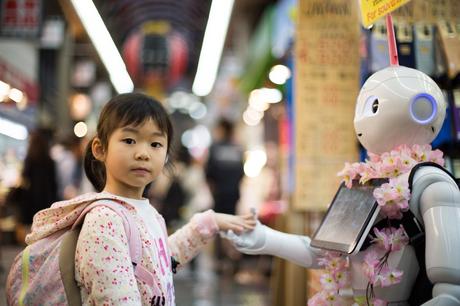The truth of artificial intelligence is not something of the far-off future. Machine learning is currently transforming our everyday lives and the decisions we make.
It is shaping and simplifying the way we live, work, travel and communicate.
We focus on 8 industries that can benefit hugely through machine learning in 2019.
What is machine learning?
Machine learning (ML) is a category of algorithm that allows software applications to become more accurate in predicting outcomes without being explicitly programmed.
The basic premise is to build algorithms that can receive input data and use statistical analysis to predict an output while updating outputs as new data becomes available.

8 business domains where ML is profoundly changing the landscape
Pharmaceuticals & Life Sciences
ML automates work that previously involved trial and error to match drug interventions with individual patients. ML models are capable of predicting a patient’s response to drug treatments. It does so by inferring possible relationships among factors that might be affecting the results, such as the body’s ability to absorb the compounds, distribution of those compounds around the body, and a person’s metabolism.
A simple blood test could tell you which parts of your body are showing signs of wear and tear, and a doctor could help you mitigate, and reverse, those effects through lifestyle recommendations and medication.
Food
Sorting food
Sorting fresh produce is one of the most time-consuming processes in any facility. The systems uses cameras and near-infrared sensors to view food in the same way that consumers do and sort it based on that perception. The result is fewer hours spent on manual sorting, higher yields and less waste, and better quality.
ML/AI in food
Developing new products
Predictive algorithms model consumer flavor preferences and predict how well they will respond to new tastes. The data can be segmented into demographic groups to help companies develop new products matching the preferences of their target audience.
Growing better food
AI is used to monitor the effects of variables like UV light, salinity, heat, and water stress on plants. With the data, new recipes are being developed for the perfect crops.
Media & Entertainment

A scene from a movie or video can be analysed and metadata can be gathered about the scene. Metadata is a set of keywords used to describe the data. A scene’s metadata can include the props shown in it, specific actors, themes and emotions.
For e.g. Tom Hanks in a red Ferrari unhappy about finding love.
Huge resources and time is required to pay humans to watch each episode or clip and manually enter metadata.
Instead ML, NLP and image processing can be used to filter structured and unstructured data. The rich metadata can create new relationships between previously unlinked content, driving deeper engagement with audiences.
Retail
If you were to browse for cat food you also see recommendations for cat-related products. This year e-commerce sites will be able to use more buying trends and customer data to provide nuanced recommendations that will accurately reflect products you might like to buy.
One of the most exciting things we’ll see it being applied in the physical store environment.
Retailers will be able to analyze customers as they walk in and help them to find the right products and offers.
With the incorporation of video analytics, retailers can analyze which products people are looking at, and even where they are looking – price, features or the picture on the box.
By considering this data, retailers will be able to make the recommendations for other products that the customer may want.
Information Technology
By 2020, there will be more than 2.7 million data science jobs, and the demand for workers who understand and can work with ML technology will only grow from there.
Also Read : Machine Learning trends that will redefine life as we know it
Law

Reviewing documents related to litigation and due diligence
These documents contain specific keywords and email transactions between X and Y parties concerning for Z topics in a particular period of time. AI can improve speed, accuracy, and efficiency of such document analysis.
Analysis of contracts
Analyzing contracts is a never ending and involves identifying risks, irregularities, renewals etc. The process is slow, error-prone and exhausts lawyers.
ML can do the task in seconds that would take humans half a million hours.
Performing researches
A case related to bankruptcy required a lawyer to spend 10 hours of research work, but a AI/ML system does it almost instantly.
Predicting decisions
Lawyers are often asked to predict the future of a case. But they don’t have complete knowledge of the relevant data and references that may give a new angle to a case.
ML can rapidly search for the data and predict whether a client should take chance of trial or settle the case.
Education

AI programs can serve as virtual tutors, and adapt their digital lessons based on each child’s strengths and weaknesses. Each time the student completes a task or quiz, a ML program processes that information to customize future materials.
By learning a user’s unique needs and identifying which types of lessons are most effective for them, it helps the student overcome learning challenges and retain more knowledge.
Research indicates that students who use such systems perform better on tests than their peers who learn via large group instruction.
Health care
ML can be trained to look at images, identify abnormalities, and point to areas that need attention, thus improving the accuracy of all these processes.
For example a physician sees a patient and enters symptoms, data, and test results into the EMR.
ML looks at everything about that patient, and prompts the doctor with useful information for making a diagnosis or a test or screening.
Looking for a custom, native iOS or Android mobile app? Get our mobile app clone scripts for startups here.

